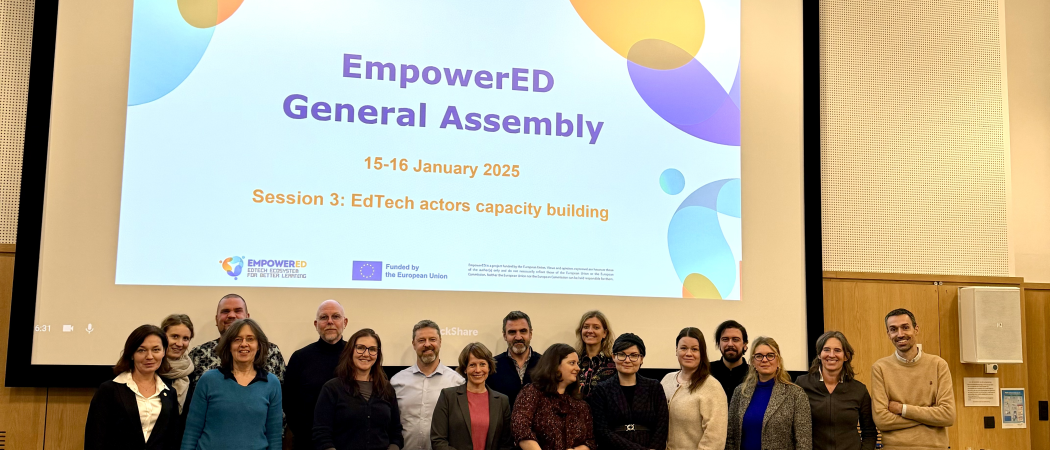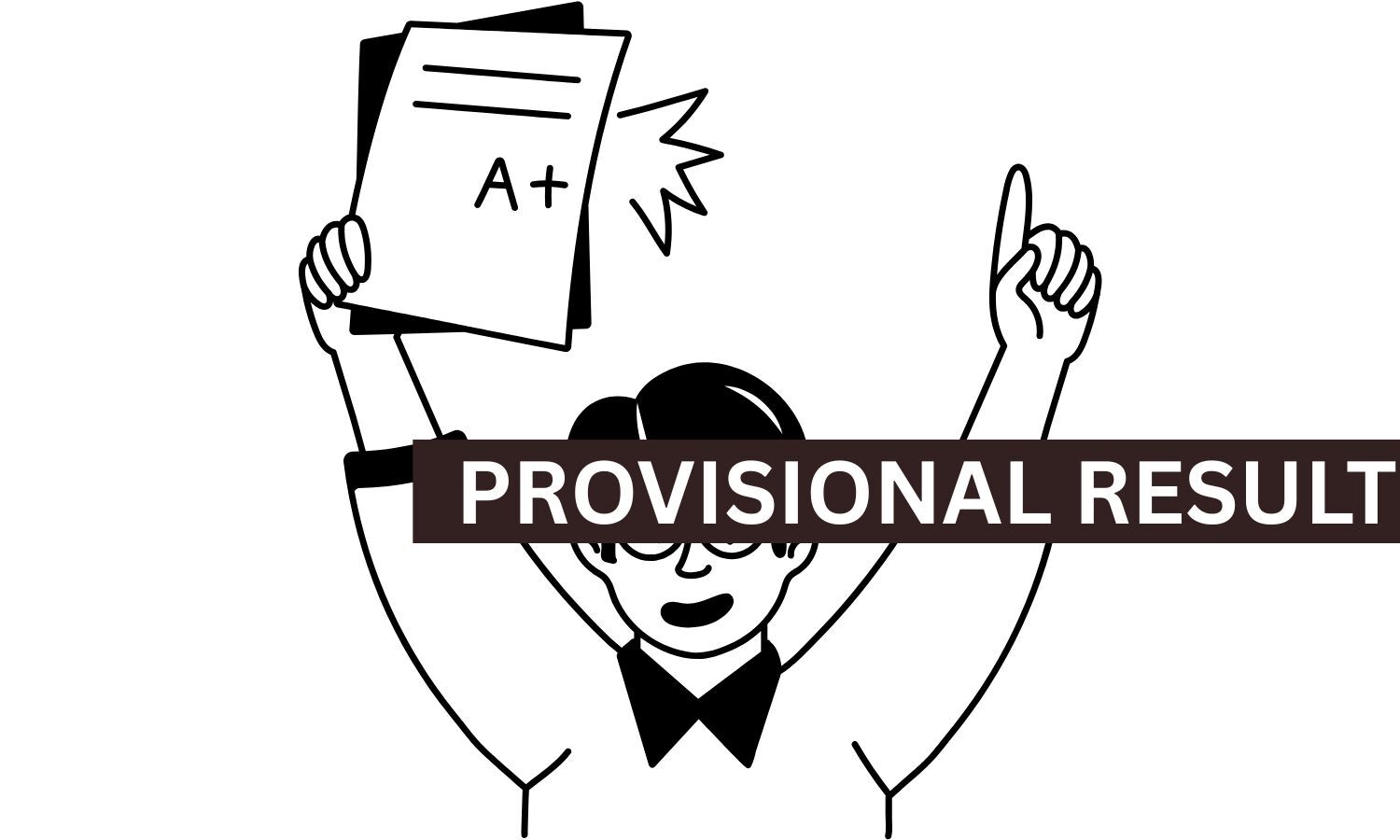
In Bulgaria, successfully integrating technology into education is everyone’s responsibility.Over the past two years, a public-private partnership has been supporting government efforts to boost investment in educational technology (EdTech), while working with educators, parents and the tech sector to expand digital learning opportunities across all educational levels — from early learners to university students. Since its founding in 2023, EdTech Bulgaria has attracted almost 30 members, representing the education sector, policymakers, researchers and Bulgaria’s growing startup community, alongside established companies. With backing from the European EdTech Alliance and the European Commission-funded EmpowerED consortium, it has also joined efforts to strengthen the emerging EdTech ecosystem across Europe.“When we started this project two years ago, we had a bold vision, but also a lot of unanswered questions,” explains Albena Spasova, co-founder and chair of EdTech Bulgaria. At the time, "everyone was working in silos — the startups, teachers and the entire education community, and the policymakers", making it unclear whether collaboration was even possible. Today, she observes, one key indicator of EdTech Bulgaria’s success to date is creating opportunities for ongoing multistakeholder dialogue and collaboration "around a shared belief that education in Europe can be more inclusive, more digital and more future-ready.”Creating synergies among Bulgaria's stakeholders has shifted the perception of digital education from "being a national challenge” to “a shared opportunity", Spasova notes. For instance, EdTech Bulgaria works closely with the Ministry of Education as it makes "significant investments" to help close the country's digital divide. It is also collaborating with the Bulgarian Human Resource Development Centre — which administers the country's Erasmus+ programme — to promote digital learning and innovation in remote and economically disadvantaged communities through a new EdTech Innovators initiative. “We want to offer them visibility to make it contagious for others,” Spasova explains. “It's a very broad community that we are uniting,” she adds, through projects, such as the Tech Innovators Marathon for children and young adults, which combines games, experiments and work to address actual challenges facing Sofia. The event is being run in conjunction with the Sofia Municipality and the region's largest science museum, Muzeiko.Closing Europe’s digital divideAcross Europe, national alliances are leveraging digital tools to make learning more accessible, engaging and personalised, while the European EdTech Alliance has supported the ecosystem with data and policy guidance since its launch in 2021. These efforts help close digital skills gaps, promote lifelong learning and foster innovation — aligning with EU strategies, such as the Digital Education Action Plan (2021–2027), and contributing to Erasmus+, Horizon Europe and EmpowerED, whose 11 partners coordinate with European Schoolnet to advance EdTech cooperation.Europe’s more than 1,600 registered EdTech companies — many small and medium-sized — are vital for the region’s economic resilience, according to Jannie Jeppesen, CEO of the Swedish EdTech Industry trade association. The sector is helping equip future generations to thrive in a competitive world, and beyond the classroom, is contributing “to all other industries by helping to create digital skills that are needed in the market and the workforce,” explains Jeppesen, who also chairs the European EdTech Alliance.But digital education in Europe faces growing uncertainty as efforts to restrict mobile phones and other devices in classrooms increase, especially for younger students. Jeppesen supports discussions on the appropriate use of technology in schools, but warns of a “digital backlash” that could hinder “learning and developing skills, critical thinking and AI literacy.” She cautions that “we cannot say in Europe’s strategies that we want digital skills, and then ban digital tools in education.” EdTech Bulgaria’s Spasova agrees, calling such restrictions counterproductive and advocating “the smart integration of technology into the educational process.”To help strike the right balance, EdTech Bulgaria is collaborating with five other EU member states on a ground-breaking pilot project, called TechWell, which aims to develop a Digital Wellbeing Suite and support international dialogue among students, teachers and parents. Supported by Erasmus+, the year-long initiative will study public attitudes towards technology in learning, involving partners from Czechia, Greece, Hungary, Ireland and Italy. Spasova says the project highlights the benefits of Europe-wide cooperation and programmes such as Erasmus+ and EmpowerED.Another major challenge for European education is the digital divide between — and even within — countries, a concern highlighted in recent competitiveness reports and strategies. In Bulgaria, for example, Spasova cites a lack of teacher training and digital resources in many disadvantaged communities. “If we want to see prosperity and economic growth in Bulgaria, we need to invest in education,” says Spasova, a lawyer with experience in teaching, training and digital security. “Not only elite education, but bringing up education horizontally in the entire country, to ensure that we also reach the most remote areas and support every child there to have access to digital knowledge.”Empowering EdTech SummitTechnology’s role in education — along with the policies that affect it and the EdTech industry — will be among the issues debated at the Empowering European EdTech and Erasmus+ Summit in Sofia, from 3–5 November. Bulgaria is hosting this high-level event to help showcase its own leadership in sustainable, digitally-empowered education and how national efforts, EU initiatives, Erasmus+ and the Digital Europe Programme can work together effectively.The event is designed to be a springboard for fresh ideas to support a thriving ecosystem, according to the European EdTech Alliance’s Jeppesen, who stresses the importance of collaboration among policymakers, educators and the industry. “This is about EdTech from and for Europe,” she says. “Everybody is a stakeholder in this and all stakeholders have a joint responsibility if we want to stimulate EdTech … and enhance value creation.”For Spasova, the Sofia Summit underlines the progress made by EdTech Bulgaria. “It’s humbling to see Bulgaria positioned today as a hub for this conversation,” she says. “EdTech Bulgaria has created momentum and trust, proving that when you connect ideas with people and policy with practice, even small countries can make a big impact in Europe. I am looking forward to empowering more people.”In Bulgaria, successfully integrating technology into education is everyone’s responsibility.Over the past two years, a public-private partnership has been supporting government efforts to boost investment in educational technology (EdTech), while working with educators, parents and the tech sector to expand digital learning opportunities across all educational levels — from early learners to university students. Since its founding in 2023, EdTech Bulgaria has attracted almost 30 members, representing the education sector, policymakers, researchers and Bulgaria’s growing startup community, alongside established companies. With backing from the European EdTech Alliance and the European Commission-funded EmpowerED consortium, it has also joined efforts to strengthen the emerging EdTech ecosystem across Europe.“When we started this project two years ago, we had a bold vision, but also a lot of unanswered questions,” explains Albena Spasova, co-founder and chair of EdTech Bulgaria. At the time, "everyone was working in silos — the startups, teachers and the entire education community, and the policymakers", making it unclear whether collaboration was even possible. Today, she observes, one key indicator of EdTech Bulgaria’s success to date is creating opportunities for ongoing multistakeholder dialogue and collaboration "around a shared belief that education in Europe can be more inclusive, more digital and more future-ready.”Creating synergies among Bulgaria's stakeholders has shifted the perception of digital education from "being a national challenge” to “a shared opportunity", Spasova notes. For instance, EdTech Bulgaria works closely with the Ministry of Education as it makes "significant investments" to help close the country's digital divide. It is also collaborating with the Bulgarian Human Resource Development Centre — which administers the country's Erasmus+ programme — to promote digital learning and innovation in remote and economically disadvantaged communities through a new EdTech Innovators initiative. “We want to offer them visibility to make it contagious for others,” Spasova explains. “It's a very broad community that we are uniting,” she adds, through projects, such as the Tech Innovators Marathon for children and young adults, which combines games, experiments and work to address actual challenges facing Sofia. The event is being run in conjunction with the Sofia Municipality and the region's largest science museum, Muzeiko.Closing Europe’s digital divideAcross Europe, national alliances are leveraging digital tools to make learning more accessible, engaging and personalised, while the European EdTech Alliance has supported the ecosystem with data and policy guidance since its launch in 2021. These efforts help close digital skills gaps, promote lifelong learning and foster innovation — aligning with EU strategies, such as the Digital Education Action Plan (2021–2027), and contributing to Erasmus+, Horizon Europe and EmpowerED, whose 11 partners coordinate with European Schoolnet to advance EdTech cooperation.Europe’s more than 1,600 registered EdTech companies — many small and medium-sized — are vital for the region’s economic resilience, according to Jannie Jeppesen, CEO of the Swedish EdTech Industry trade association. The sector is helping equip future generations to thrive in a competitive world, and beyond the classroom, is contributing “to all other industries by helping to create digital skills that are needed in the market and the workforce,” explains Jeppesen, who also chairs the European EdTech Alliance.But digital education in Europe faces growing uncertainty as efforts to restrict mobile phones and other devices in classrooms increase, especially for younger students. Jeppesen supports discussions on the appropriate use of technology in schools, but warns of a “digital backlash” that could hinder “learning and developing skills, critical thinking and AI literacy.” She cautions that “we cannot say in Europe’s strategies that we want digital skills, and then ban digital tools in education.” EdTech Bulgaria’s Spasova agrees, calling such restrictions counterproductive and advocating “the smart integration of technology into the educational process.”To help strike the right balance, EdTech Bulgaria is collaborating with five other EU member states on a ground-breaking pilot project, called TechWell, which aims to develop a Digital Wellbeing Suite and support international dialogue among students, teachers and parents. Supported by Erasmus+, the year-long initiative will study public attitudes towards technology in learning, involving partners from Czechia, Greece, Hungary, Ireland and Italy. Spasova says the project highlights the benefits of Europe-wide cooperation and programmes such as Erasmus+ and EmpowerED.Another major challenge for European education is the digital divide between — and even within — countries, a concern highlighted in recent competitiveness reports and strategies. In Bulgaria, for example, Spasova cites a lack of teacher training and digital resources in many disadvantaged communities. “If we want to see prosperity and economic growth in Bulgaria, we need to invest in education,” says Spasova, a lawyer with experience in teaching, training and digital security. “Not only elite education, but bringing up education horizontally in the entire country, to ensure that we also reach the most remote areas and support every child there to have access to digital knowledge.”Empowering EdTech SummitTechnology’s role in education — along with the policies that affect it and the EdTech industry — will be among the issues debated at the Empowering European EdTech and Erasmus+ Summit in Sofia, from 3–5 November. Bulgaria is hosting this high-level event to help showcase its own leadership in sustainable, digitally-empowered education and how national efforts, EU initiatives, Erasmus+ and the Digital Europe Programme can work together effectively.The event is designed to be a springboard for fresh ideas to support a thriving ecosystem, according to the European EdTech Alliance’s Jeppesen, who stresses the importance of collaboration among policymakers, educators and the industry. “This is about EdTech from and for Europe,” she says. “Everybody is a stakeholder in this and all stakeholders have a joint responsibility if we want to stimulate EdTech … and enhance value creation.”For Spasova, the Sofia Summit underlines the progress made by EdTech Bulgaria. “It’s humbling to see Bulgaria positioned today as a hub for this conversation,” she says. “EdTech Bulgaria has created momentum and trust, proving that when you connect ideas with people and policy with practice, even small countries can make a big impact in Europe. I am looking forward to empowering more people.”






























































































































